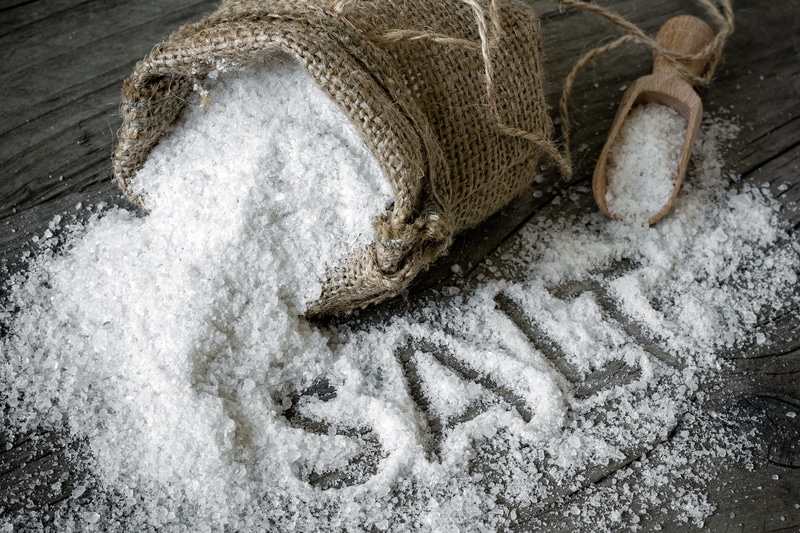
Hard water can be extremely dangerous to health because it contains hard minerals and salts that clog the water systems as well the veins and arteries. For this reason, people have started using water softening systems in their pools that eliminate hard minerals from the water and turn it into soft water; that’s a safer choice. The water softening systems have special salt, which eliminates the harmful minerals. Since there are different salts available which is why we are talking about the differences between pool salt and water softener salt. So, let’s check out the differences between these two forms of salt.
Pool Salt vs Water Softener Salt
Both water softening salt and pool-oriented salt can be used for maintaining the pools. However, the water softening salt tends to be coarser and tends to have some impurities that create a discoloring and corrosive effect on the pools. In addition to this, the water softening salt tends to take longer to dissolve. If you are wondering if these two salts are the same, it’s true to some extent. This is because both water softening salt and pool-oriented salt will help clean the pool by eliminating the lower chlorine levels over the course of time. In addition, both can be safely used in the swimming water. On the other hand, there are numerous differences that must be considered;
- The water softening salts tend to come in the forms of pellets and are coarser, which means it will take longer to dissolve. In simpler words, the water-based salt has bigger crystals, which increases the dissolving time
- The pool salt tends to have a much finer and promises quick-dissolving. Using this salt will ease the pool maintenance job and quicken up the process
- Some water softening salts are designed with higher manganese levels, which results in discoloration in the pool. For this reason, you shouldn’t opt for the water softening salt from the Midwestern countries
- There are some varieties of water softener salts with impurities, which results in greyish or pink tints
On the other hand, you must remember that water softening and pool salt have the same grading method. In case you want to use the water softening salt, you should opt for pure and high-quality salt, and it’s recommended to choose the pellets with over 99% purity.
Using Water Softener Salt For The Pool
The water softening salt can be used in the pool to clean it up. This is because, just like salt for pools, the water softening salt can be utilized as it has enough chlorine levels to clean up the pool. It’s common for people not to utilize a water softening salt for the pool, but it doesn’t have any side effects, so make sure the water-salt has around 99% of KCI or NaCl. The salt used for pool is quite convenient to work with; however, using the water softening salt won’t be bad either. The pure and high-quality water softening salt will not harm the skin. However, you have to be extremely particular about the water softening salt because the wrong one can damage the pool and result in stains (using pure salt won’t do any damage).
Using The Impure Water Softening Salt
While it’s possible to use water softening salts, you must be extremely particular about which ones to use because they are all different. This is because impurities in the water softener salt can result in corrosion on the vinyl floors of the pool and can change color. In some cases, specific impurities can result in skin irritation for people with sensitive skin issues.
Using Surplus Water Softening Salt For The Pool
Now that we have outlined that you can use water softening salt in the pool, it is important to consider how much salt you add to the pool. However, you don’t need to add extra water softener salt to the pool because the same quantity of salt will work the same.
The Bottom Line
There are hardly any differences between pool salt and water softening salt when you use pure salts. The primary difference is the salt’s grain size and the impurity level. So, sticking to the pure salt will ensure that your pool water is alright and doesn’t leave behind any stains.